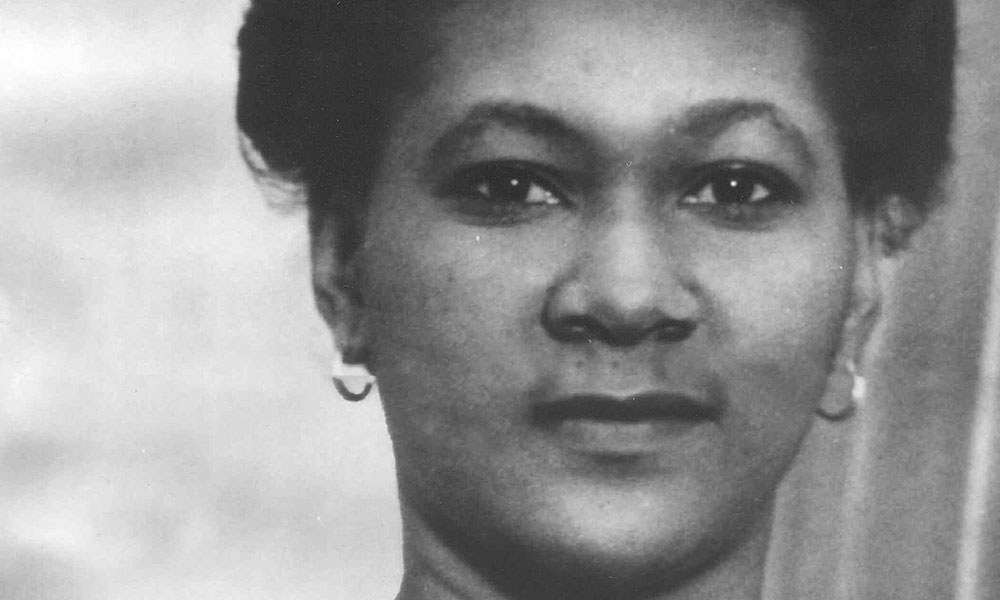
John H. A. Duport was born in the Parish of St. Thomas, Middle Island in either 1830 or 1831 and may have been the son of enslaved parents. Nothing is known of his childhood but he must have been a good student and seems to have developed an interest in the Anglican Church during his teenage years.
In 1851, Archdeacon Brathwaite of St. George’s recommended two young men for training for a new Mission in Africa which was being launched from Barbados by the newly formed West Indian Church Association, a branch of the Anglican Church, whose objective it was to promote a mission from the Church in the West Indies to West Africa. It functioned in conjunction with the Society for the Propagation of the Gospel in London
The two men were Moses Morris and John Duport. In November they were admitted to the Mission House at Codrington College to begin their preparation with courses in the Bible, History, Geography, Grammar, Arithmetic and Music. Duport spent four years at Codrington and while Principal Rawle was in England during 1854, he acted as master of the “Society School” a school on the Codrington estates administered by the SPG.
In 1855 Duport accompanied the Rev. Leacock to Africa. They travelled to England and after a brief stay sailed for Sierra Leone reaching their destination, Rio Pongas on the 12th December 1855. The coastal areas of the territory were occupied by the Susus, followers of native religion with the Muslim Fulani in the interior. The two groups were often at war with each other. The mission was set up on land donated by Chief Richard Wilkinson, who was the son of and English man and an African woman and who had been partially educated in England. By August 1856 the senior member of the team fell victim to the climate and died. The work of the mission fell on John Duport, his ‘subordinate teacher’ and “industrial help”. Duport was ordained Deacon in Sierra Leone two months later.
The mission consisted of a church, a school and a small house all built out of mud walls, grass roofs and bare floors. The church was the venue for services and instruction every evening. Regarding the first day Duport later recounted how he found for scholars a number of naked boys wearing belts with long knives stuck in them. He explained to them that they had to leave the knives at home so the next day they showed up with muskets.
Duport also had to shoulder administrative duties which included keeping accounts and forwarding these to the SPG. As he had not been told of this responsibility, he found himself without a salary for more than a year until he received assistance from the Governor of Sierra Leone. The chain of authority was not clear. Reporting to Barbados was going to cause difficult and contact with the Bishop in Sierra Leone also took time which left Duport in isolation.
Very early Duport realised the importance of communication in the native language and embarked on a translation of the Prayer Book into Susu and the preparation of a Susu primer to enable missionaries that followed him to acquire a working knowledge of the indigenous language. By 1860 he was able to preach in Susu. Duport was also concerned with how to deal with native customs. Polygamy was common in the region but frowned upon by the Church. Gift giving was a tradition which often made the difference between a welcome and a rejection of the visitor. When confronted by a chief about the fact that he had not presented any gifts, Duport showed an insensitivity typical of the men who sponsored the mission and answered that the Gospel was enough.
The young missionary also had the unfortunate experience of having charges brought against him. Very likely triggered by jealousy at the fact that a black man was in charge of the mission, Chief Wilkinson and School Master Cyprian claimed that he had misappropriated funds, taken a ring belonging to Rev Leacock, had illicit intercourse with a young woman, was drunk during service, and engaged in trading while neglecting the school. The Board in Barbados found that there was no foundation to the charges and that the trading that Duport had actually done had been for the good of the mission. However they were still cautious and recommended “probationary employment”
When Duport returned to work it was under the Rev. W. L. Neville in 1858. Three new missionaries arrived soon after but illness took its toll on the newcomers and once again the burden of the mission fell almost completely on the Kittitian deacon. He was finally ordained priest on the 26 th February 1861. That same year the old mission house was destroyed by fire and with it went Duport’s Susu manuscripts. Undaunted he started his work of translation again and eventually a working knowledge of the language became a requirement for ordination of missionaries in that region. He also laid the foundation of a new station in a neighbouring territory and also began to raise the issue of training native missionaries. Then in 1863, an illness forced him and the new head of the mission into convalescence. They were both sent to Barbados to recover.
Duport’s return to the Caribbean was not a rest period and the services he held, raised even more funds for the work he was doing in Africa. He visited several islands where the fact that he was a descendant of African slaves aroused a great deal of curiosity so that each time he appeared in public he addressed packed audiences. Newspaper commentaries on his services held him up as
the positive and most conclusive refutation, ... of the fictitious theory which denies the sable African intellectual equality with the rest of mankind.
For the Anglican Church, Duport’s Caribbean visit was a magnificent opportunity for a public relations exercise. In St. Kitts, the Moravians of Basseterre offered to welcome him into their church where he could address a wider audience.
On the 18th September 1863, the Board appointed Duport Superintendent of the Pongas Mission, however his stipend was less than that of his white predecessors and even his appeals for an increase were dismissed as unnecessary. The request for an allowance to cover medical expenses was also rejected. In 1865 he became ill again and lost a child. His wife died in 1867. He made her coffin himself as there was no available carpenter at the time and then held her funeral service in English, at the Church and in Susu at the grave site. He then had to face the task of looking afte three children on his own. Despite all this Duport continued to work bearing the physical strain of caring for the two main stations and for several smaller ones that were being built.
One of his main concerns stemmed from the very infrequent visits of the Bishop of Sierra Leone. This meant that converts had to continue receiving instruction without any idea of when they would be confirmed by the Bishop. However Duport made an effort to maintain a presence in all the stations and appointed suitable lay persons as church and class visitors to ensure constant attention to the various branches of the mission. He also appealed to the local Chiefs to identify young men that he could train as teachers and catechists
In 1869, Duport’s professional status suffered a blow when it was discovered that he had been living with his fiancée before they had been officially married. His licence to serve in Rio Pongas was revoked. Meanwhile, a chief who owed a debt to the mission that he was unwilling to pay accused the missionary of manslaughter. An investigation cleared him of the latter charge.
At the invitation of the King of Naloos, Duport went to Rio Nunez where he again zealously launched himself into all manner of missionary activities. By then his Prayer Book in Susu had been published, spurring him on to continue his translations of the Bible. Another fire destroyed much of his work and this time depression set in. He wrote, “I feel now completely discouraged and my heart is sad within me.” He rebuilt the church but his health continued to deteriorate. Meanwhile Barbados passed responsibility for him to the English Committee. In 1872, his licence was restored but his health forced him to request a leave of absence. Despite his reconciliation and his deeply penitent state, the English Committee preferred that he not visit England and he proceeded instead straight to the West Indies. However a direct passage was impossible and Duport landed in England in June 1873 where he died on the 20th September. His family he entrusted to the charity of the West Indian Church Association.




